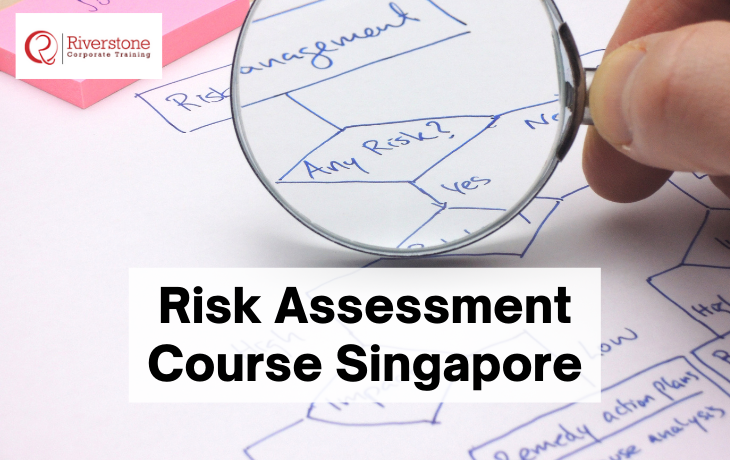
Risk Assessment Course Singapore
Introduction
Do you want to know how to analyze risk when starting a new business or venture? Are you worried about the potential damage that could be done if something goes wrong? If so, the Risk Assessment Course Singapore is the perfect program for you! This intensive course will help you understand how to identify and assess risk factors in your project to make intelligent decisions about whether or not it’s worth taking on.
What is Risk Assessment?
Why is the Risk Assessment Course Important?
The Risk Assessment Course is essential for organizations as it allows them to identify and assess the risks associated with a particular project, business, or activity. It can also help to identify potential problems and how best to protect yourself from them. The Risk Assessment Course is also helpful for individuals who want to understand the risks associated with their actions and decisions.
Types of Risk Assessment Course
When considering taking a risk assessment course, it is crucial to understand the various courses available.
There are three main types of risk assessment courses:
- The introductory risk assessment course. This course is designed for individuals with no previous experience in risk assessment or decision-making. It covers the basics of risk assessment, such as the different types of risks, how to identify them, and how to measure them.
- The intermediate risk assessment course. This course is for individuals with experience in risk assessment who want to deepen their understanding. It covers more complex topics, such as Risk Management Plans, Probability and Impact Analysis, and Decision Support Tools.
- The advanced risk assessment course. This course is curated for individuals with a lot of experience in risk assessment and decision-making. It covers more specialized topics, such as Terrorism Risk Assessment, Environmental Risk Assessment, and Financial Risk Assessment.
Benefits of Risk Assessment Course in Singapore
The benefits of taking a risk assessment course in Singapore are many:
- It can help businesses to identify and assess the risks associated with their operations. This can let them make informed decisions about managing those risks and allow them to take action if they find a particular risk harmful.
- A risk assessment course can help businesses better understand their customers and potential threats. This knowledge can enable them to create effective customer protection policies and improve business relationships with key stakeholders.
- A risk assessment course can help businesses to identify are as for improvement in their safety procedures.
By doing this, they can ensure that any potential risks are adequately addressed and minimized
Critical Path Analysis
Critical Path Analysis (CPA) is a software application that helps to optimize the sequence of tasks and projects to achieve the desired result. It is a strategic planning tool that evaluates the risk associated with each step in a project and identifies and mitigates potential risks. One critical factor in CPA is the identification of key risks and their impact on the overall project. A risk assessment can identify potential project plans, schedules, resources, or product problems. Risk assessment tools can also measure the probability and magnitude of these impacts.
Risk assessment can be an essential part of any business or project. Still, it can be crucial for projects funded by government agencies or those with high stakes for financial or other reasons. For example, NASA uses risk assessment to ensure that its projects meet safety standards before launching into space. There are many different types of risk assessment tools. Still, they all have one common goal: to help decision-makers understand the likelihood and impact of potential problems so they can come up with informed decisions about how to proceed with a project.
Control Measures
The importance of risk assessment is emphasized by the ever-growing number of cyberattacks in Singapore and globally. Cybersecurity professionals constantly search for new and more sophisticated risks, so organizations must have a good risk assessment process.
These are a few tips on how to do a risk assessment:
- Define your risks. The first aspect of any risk assessment is understanding what risks you’re concerned about. This might include financial or reputational damage, loss of customers or data, or physical harm to personnel or property. Once you know what you’re worried about, it’s easier to identify which areas of your business are at the highest risk and focus your efforts there.
- Assess the consequences of potential risk. After you’ve identified the risks you’re concerned about, it’s essential to understand the implications of those risks happening. This could involve estimating the financial cost of a breach, calculating the impact on customer loyalty or sentiment, or estimating the number of casualties that could result from a physical attack.
- Evaluate potential control measures. Once you know the consequences of a potential risk, it’s time to look at possible controls
Conclusion
Thank you for selecting our Risk Assessment Course Singapore. Our course is designed to help managers and professionals critically assess the potential risks associated with their business activities and make informed decisions about managing them. With this course, you will be able to improve your skills in risk assessment, develop a better understanding of the legal framework governing risk management, and identify practical steps that can be taken to reduce the risks associated with your business operations.

